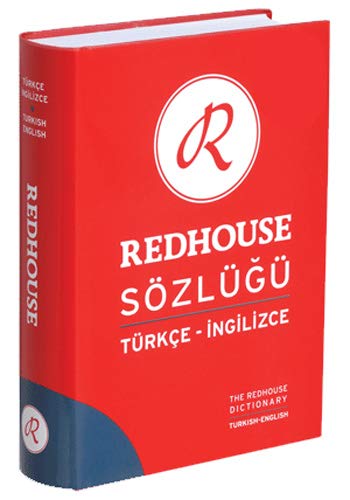Turkish
Wednesday 11 January 2023
I find Turkish interesting. I’ve almost finished a 300 page introduction course (half grammar half conversation texts). I’m switching to YouTube’s Easy Turkish series to train my brain more in the sound of the language and picking up more vocabulary and idiom.
I’ve purchased a second hand copy of a 3rd edition Redhouse New Turkish-English Dictionary to supplement Wiktionary. It looks pretty new—no actually gorgeous.

I also have an old grammar by G. L. Lewis.
The version of Redhouse that I’ve got seems very good. But Wiktionary is not bad either. Wiktionary often adds etymology, which often points to Arabic, which is rather distracting for someone who’s interested in that language as well.
There has been a huge language reform in Turkish to purge it from Arabic, Persian and more, but a lot still remains. Which is cool by me. I like how I can discover Chinese in Japanese and Arabic in Turkish.
So here’s a fragment from Easy Turkish: Söyle aslında boş vakitlerde ben genelde resim çizmeyi çok seviyorum. The second word (aslında, “actually”) already comes from Arabic, ʾaṣl, (ground, origin, foundation, basic rule, root—etc. in Wiktionary). Also fun to input the root in qurantools.mst.edu.au and see where the word is used in the Qur'an (Quran,Koran)
إِنَّهَا شَجَرَةٌ تَخْرُجُ فِىٓ أَصْلِ ٱلْجَحِيمِ
innahā shajaratun takhruju fī aṣli l‑jaḥīmi
That is a tree that rises in the root of Hellfire.
What tree is that? The tree of Zaqqūm.
Wikipedia: The fruits of Zaqqum are shaped like heads of devils (Qur'an 37:62-68). Some Islamic scholars believe in a literal meaning of this tree grown in fire, showing the inverted flora of hell. The inhabitants of hell are forced to eat the tree's fruits, which tears their bodies apart and releases bodily fluids as a punishment.
Yeah, that’s the Qur'an alright.